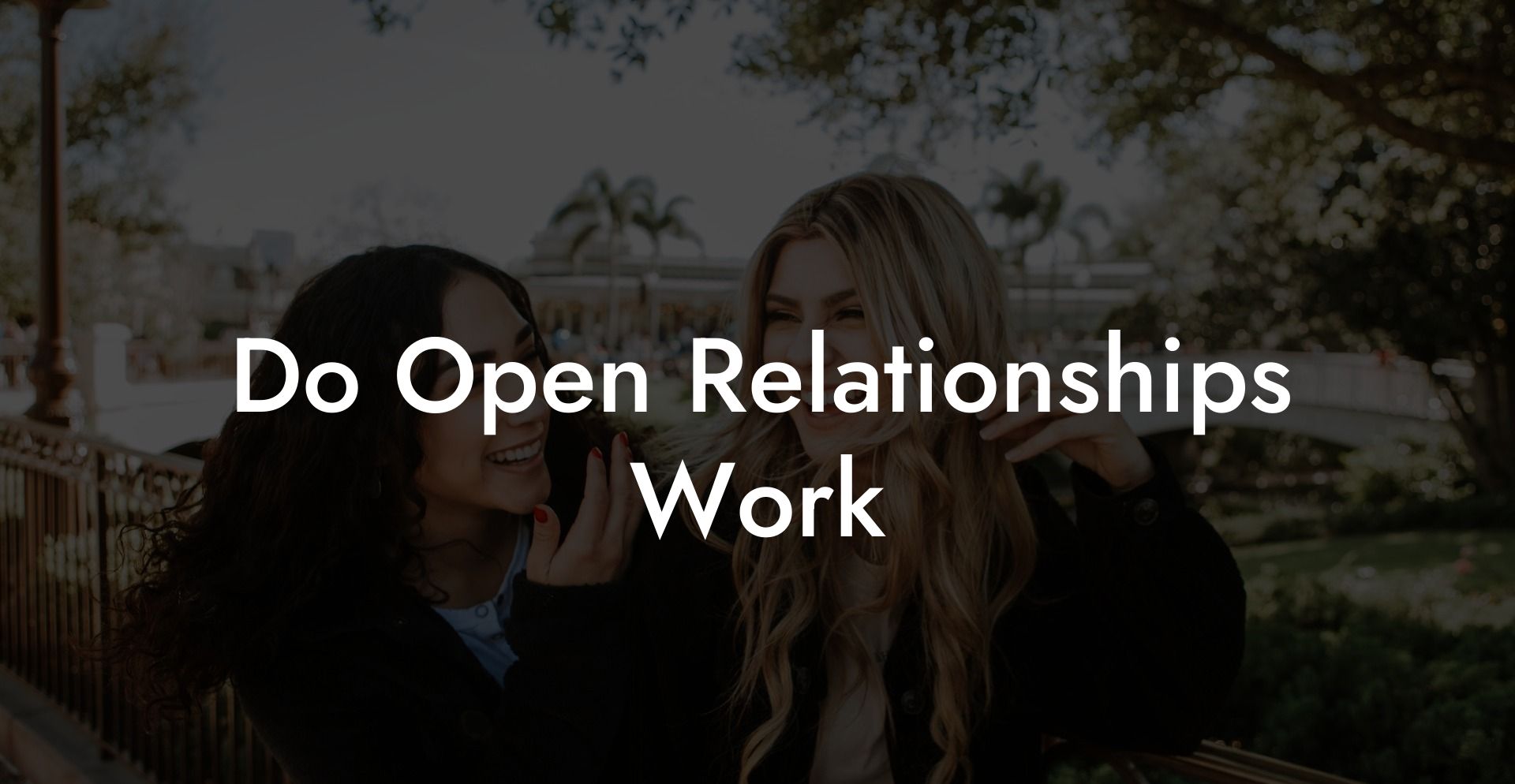The concept of open relationships has garnered a lot of attention over the years, as more and more people are seeking alternatives to traditional monogamy. The question that often surfaces, however, is whether open relationships actually work. In this article, we'll delve into the intricacies of open relationships, discuss their benefits and challenges, and provide a realistic example to help you decide if this relationship structure might be right for you.
Do Open Relationships Work Table of Contents
What are Open Relationships?
Open relationships, also referred to as consensual non-monogamy, involve a committed couple agreeing to engage in intimate relationships with other people. This can be done in various ways, such as allowing casual sexual encounters or forming emotional connections with others – all while maintaining their primary, committed relationship. It's essential for the couple to establish boundaries and keep open communication to ensure the success of their open relationship.
Benefits of Open Relationships
- Emotional growth and self-discovery: Engaging in open relationships can expand your emotional horizons and help you discover aspects of your personality previously unexplored. By interacting with multiple partners, you may gain insights into your desires, boundaries, and relationship preferences.
- Reduced jealousy: Successful open relationships promote honesty and transparency, allowing partners to discuss their desires openly. As a result, jealousy can be minimized or even eliminated, as both partners understand the nature of their relationship and trust one another.
- Sexual satisfaction: Open relationships allow individuals to explore their sexuality with multiple partners, which can lead to increased sexual satisfaction and a deeper understanding of one's desires and preferences.
- Social support: Having multiple partners can provide additional social support and emotional connections, which can be helpful during difficult periods in life or when one's primary partner is unavailable.
Challenges of Open Relationships
- Time management: Balancing multiple relationships can be time-consuming and demand prioritization to ensure that each partner's needs are met while avoiding neglecting one's primary relationship.
- Stigma: Open relationships, though becoming increasingly more accepted, still face societal stigma. Couples might face judgement and misconceptions about their relationship from friends, family, and society at large.
- Communication: As with any relationship, communication is key. However, open relationships require a higher level of communication and trust between partners – constantly discussing feelings, boundaries, and expectations to avoid misunderstandings and potential conflicts.
- Emotional turmoil: Even with open communication, navigating the emotional challenges of an open relationship can be difficult. Feelings of jealousy, insecurity, or possessiveness may arise, and couples must work together to address and overcome such emotions.
Do Open Relationships Work Example:
John and Jane have been together for three years and have a strong, loving relationship. However, they both feel curious about exploring their sexuality with others. They have an open and honest conversation about the idea of an open relationship, and together, they set boundaries and guidelines for their new arrangement: they decide to only engage in casual sexual encounters with other people, without emotional attachments.
As time goes by, John and Jane maintain open communication about their experiences. They discuss their individual encounters, ensuring they remain on the same page and address any feelings of jealousy or insecurity that may arise. Over time, they find that the open relationship has strengthened their commitment to each other and created an environment of trust, support, and emotional growth.
In conclusion, open relationships can work for some couples, provided there is a strong foundation of trust, communication, and mutually agreed-upon boundaries. It is essential to consider the potential benefits and challenges, as well as reflect on your personal values and relationship preferences, before venturing into the world of open relationships. We hope this article has provided some valuable insights into the intricate world of non-monogamous relationships. If you found this post helpful, feel free to share it with others and explore our other in-depth guides on The Monogamy Experiment.













